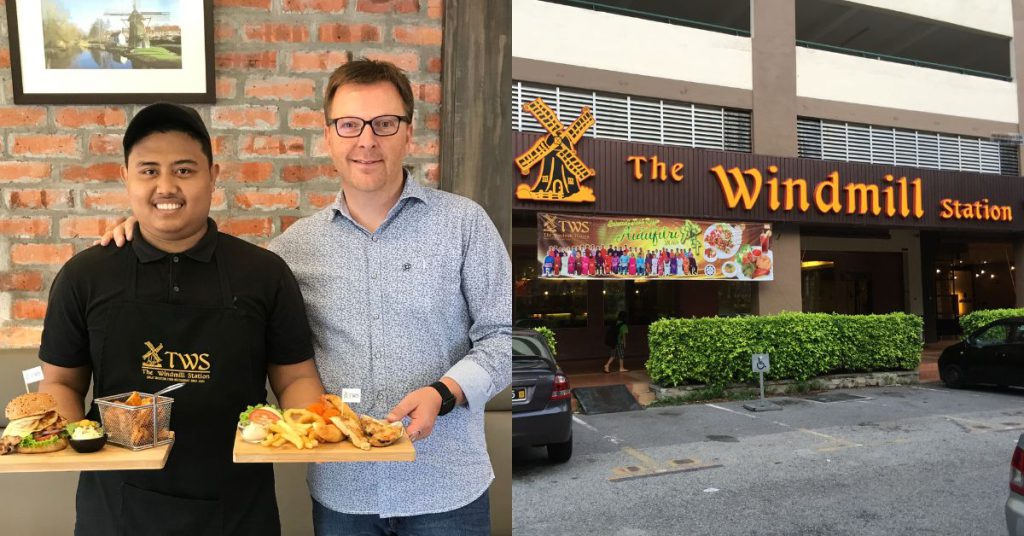Growing up in Melaka, one of the restaurants my family frequented was The Windmill Station (TWS).
There was one right in front of the mall we bought groceries from—AEON Melaka, the only AEON in the state at the time.
Oftentimes, our visits would be spurred on by buy-one-free-one coupons we cut out from the City Explorer magazine. Other times, it was because our relatives were in town and TWS was a good spot that could sit all of us while catering to everyone’s preferences, from young kids to the elderly.
Considering how localised the menu and overall vibe was, I always thought that TWS was started by a Malaysian. However, upon researching, I was surprised to find that the person behind it hailed from the land of windmills himself.
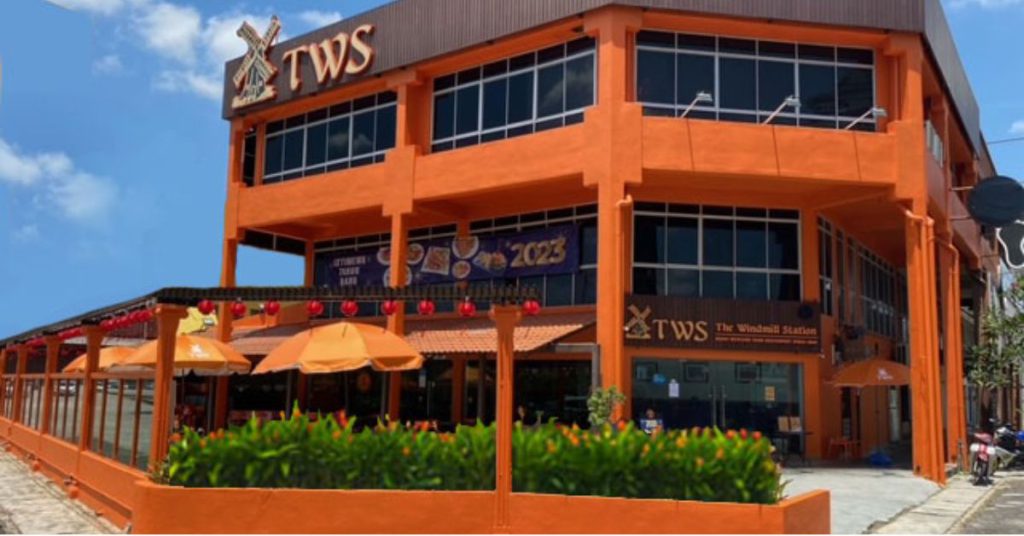
Eager to learn more, I reached out to the founder, Ællard Van Schaik.
A tale of liefde (love)
“Where to start?” he mused. “Because there’s so much to say, actually.”
Perhaps the story of TWS started when Ællard met his wife, Lai Pow Choo, who was originally from Melaka.
“I met her in Holland, we had both worked in the IT line for many years for the same company,” he shared.
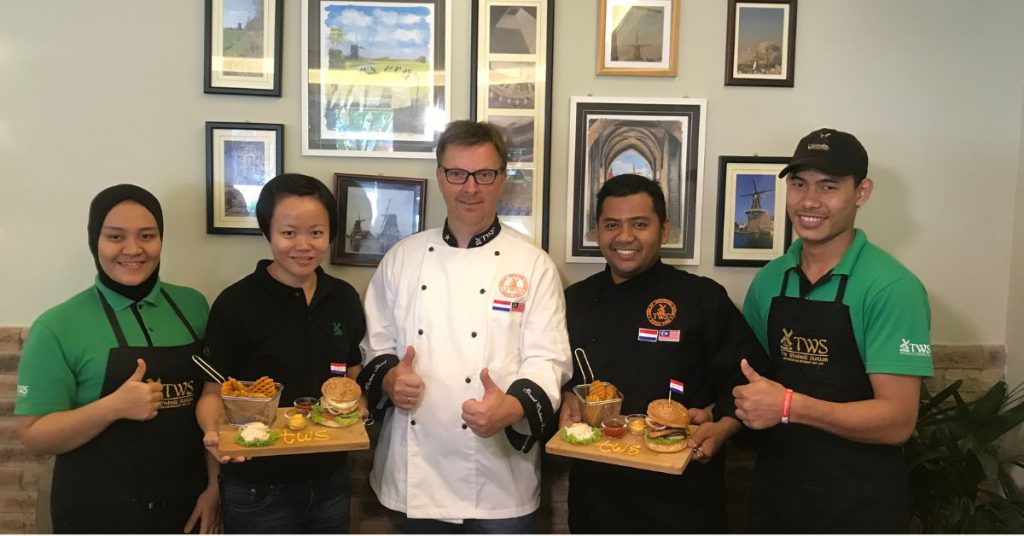
Around the year 2000, the couple decided that they’d like to try building a life back in her hometown, so they moved back.
As a Melakan, Pow Choo was a lover of food and cooking, so the couple decided to do something in the field. At first, the plan was to buy a franchise from a company by the name of The Fish Shop.
This might be a familiar name to those in the industry, as it has quite a history in Malaysia, particularly one involving The Manhattan Fish Market.
So, they bought the franchise and set up shop in Mahkota Parade, a mall in Melaka.
“But we saw very soon that we could do it better, we could do it with different food,” he shared.
So, in 2000, The Windmill Station opened up its first outlet in Melaka Raya.
East meets west
With her being a foodie, Lai Pow Choo created most of the recipes, tailored to their own tastes and preferences.
The founders were adamant about creating the dishes from scratch, not simply using pre-made sauces from big brands.
“I’m proud to say that some of our sauces, like the black pepper sauce, are still using our original recipes and they’re still very much liked by our customers,” he shared. “After 20+ years, that counts for something, I think.”
Given Ællard’s background, I wondered why they didn’t go for a menu that was more European or Dutch. Instead, TWS’ menu focuses on more typical dishes such as grilled chicken chop, black pepper chicken burger, aglio olio, and more. It also features local food like nasi goreng.
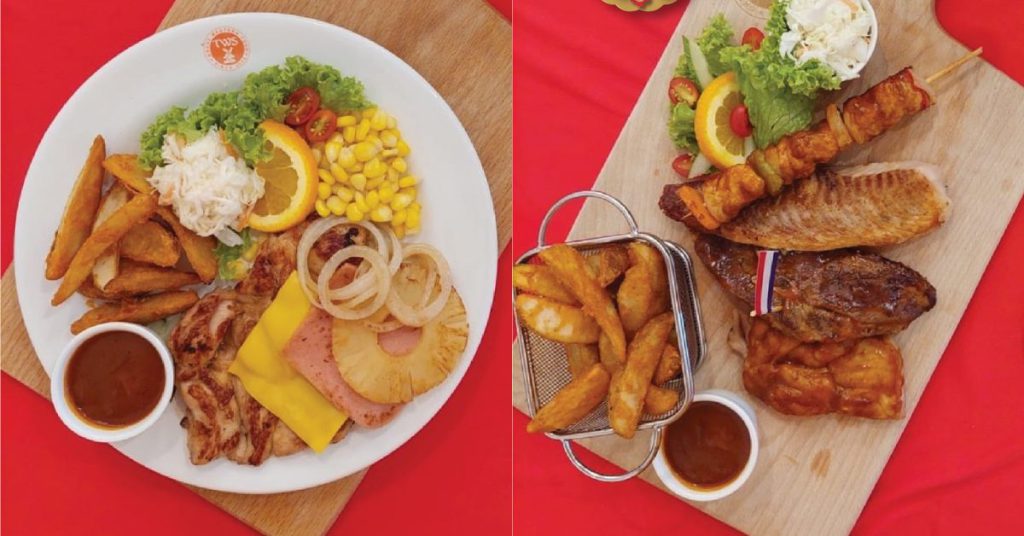
“We deliberately chose to mix east and west,” he said. “Only Western was not good enough, I think it would not be attractive enough.”
This is especially because TWS aimed to be a family restaurant. Ællard had noticed that the older generation often prefers local flavours, while the younger generation will go for Western food. Thus, a mixture of both was ideal.
(In any case, Dutch food likely would’ve been too niche in Melaka, circa 2000. Even today, Dutch food is not commonplace in Malaysia.)
Closures and new beginnings
The first outlet in Melaka Raya had been doing well, and in 2002, they opened a second outlet, which was the one in AEON (still called Jusco at the time).
“I recall there was a lot of sweat,” the founder said, referring to the lack of air conditioning in the outlet.
However, after many years there, the management wanted a change. It was looking to renovate the space and wasn’t keen on continuing with TWS.
But that was a blessing in disguise, as they found a better place in Bukit Beruang, just a stone’s throw away from the Multimedia University’s (MMU) Melakan campus.
“That was a great success for us,” he said. “The place was huge, full with air-con, in a comfortable location. That is, until now, basically the best-performing outlet.”
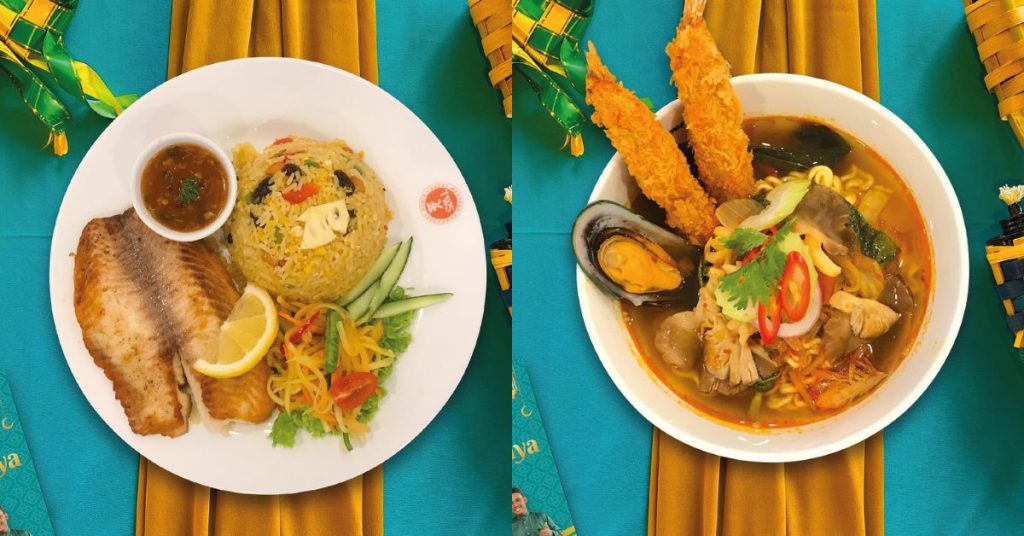
From there, the business continued to expand. The brand was invited to start a restaurant in Marvelux Hotel in Kota Laksamana. Then, they went beyond the state borders to establish an outlet in Seremban 2, Nilai, and Seremban Gateway.
Sadly, those three out-of-state locations have been shuttered.
“They were not performing good enough, we had to close them,” Ællard said.
However, the TWS further south in Batu Pahat has been doing quite well. TWS also has a central kitchen around the Kota Laksamana area to standardise the food quality and cost.
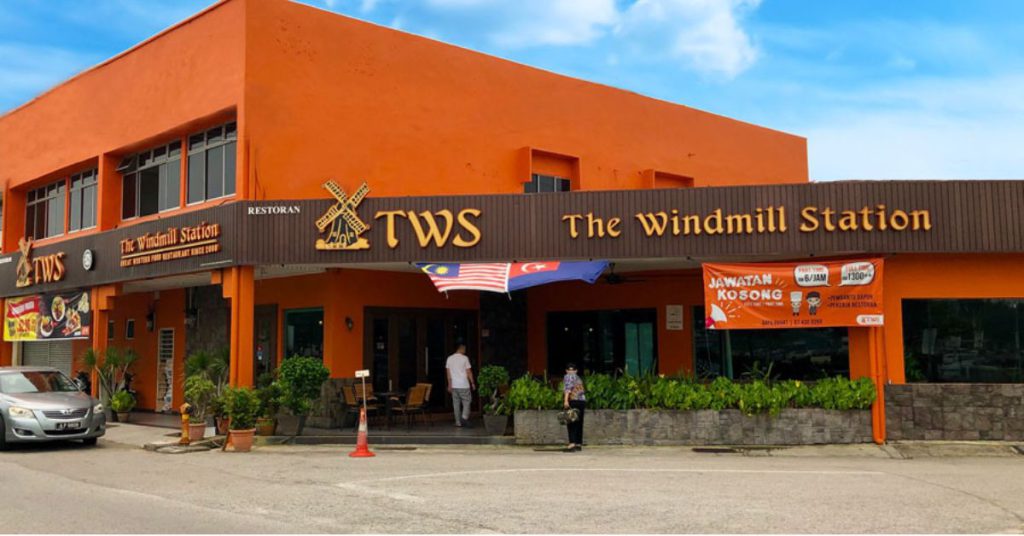
Challenges over the years
Looking back at the outlets that closed down, Ællard believed that it mostly came down to the location. They were simply too far away from the crowds. But the last one, Gateway, was due to the impact of the MCOs.
It turns out that being at the right place at the right time truly is a key component to business.
To stay afloat during the pandemic, TWS launched some ready-to-eat products, that ended up doing quite well, though it isn’t the main focus of the business now.
Another challenge they faced was franchising. At first, they tried to set up their outlets as franchises, but TWS later consolidated all the outlets.
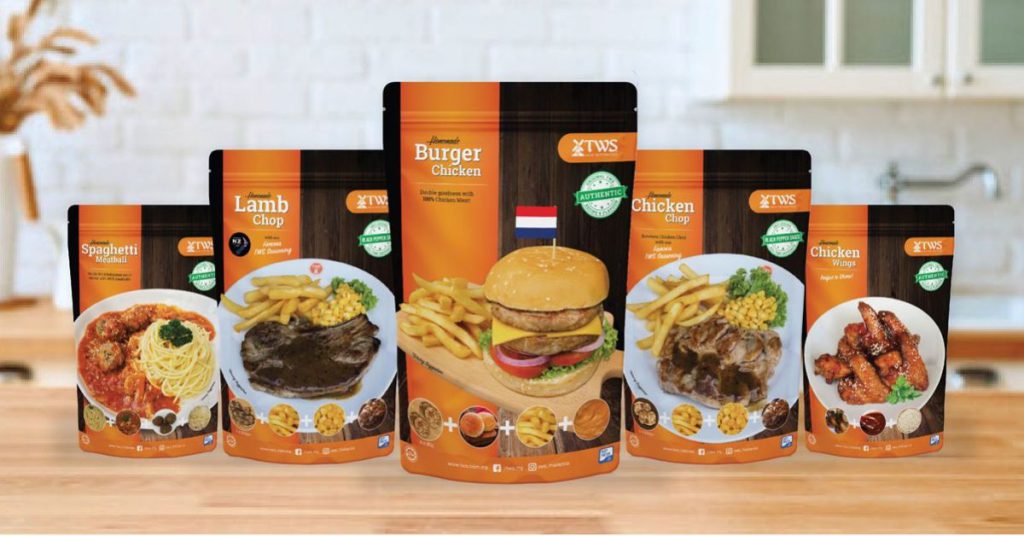
Now, they’re ready to foray into the scene again.
“But we will only do it when it feels good to us,” he explained. “I don’t want to expand in a crazy speed, but we do it in a solid way. I’d rather slow and steady, rather than fast and booming.”
The team’s current proposal for franchise opportunities is that they would still like to be a part of the picture as partial owners.
As for other expansion plans, Ællard shared that they are some considerations on opening more stores. However, instead of going north to KL, he’s thinking of Johor Bahru as a more feasible location, perhaps following the success of the Batu Pahat outlet.
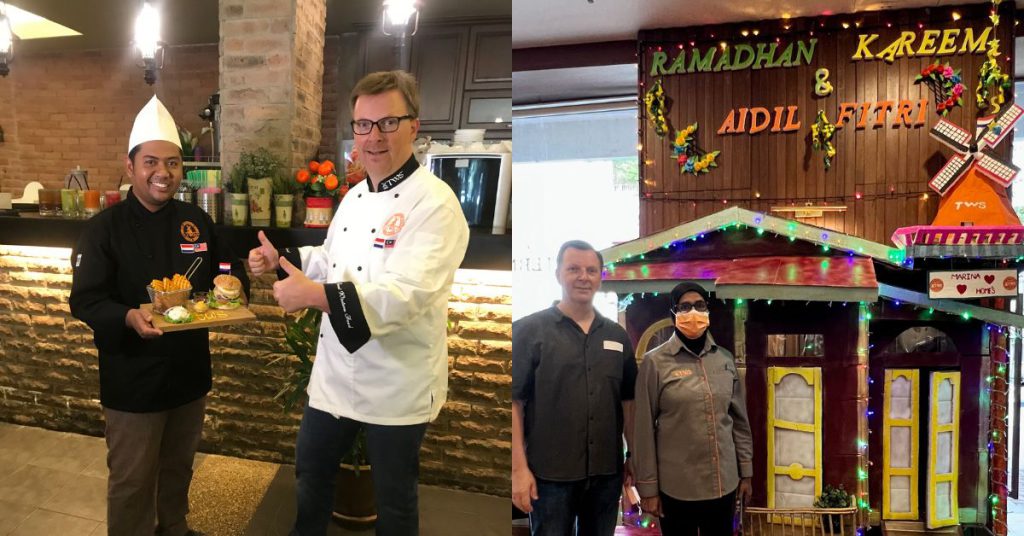
“The identity of JB matches more with what we see in Melaka,” he said. “We feel that we can be more successful there than in KL. KL is… it’s a different story.”
Catering to all families
The F&B landscape in Melaka has certainly changed over TWS’ 23 years of operation. Just looking at Bukit Beruang, where I lived, many new, hip eateries have come and went.
But the Western restaurant has remained.
“There’s definitely competition,” Ællard said. “Melakans are always looking for new places, for new food, new things. But as a family restaurant, I think we can still stand strong.”
This is helped by the fact that TWS is fully halal and JAKIM-certified, making it a comfortable option for all.
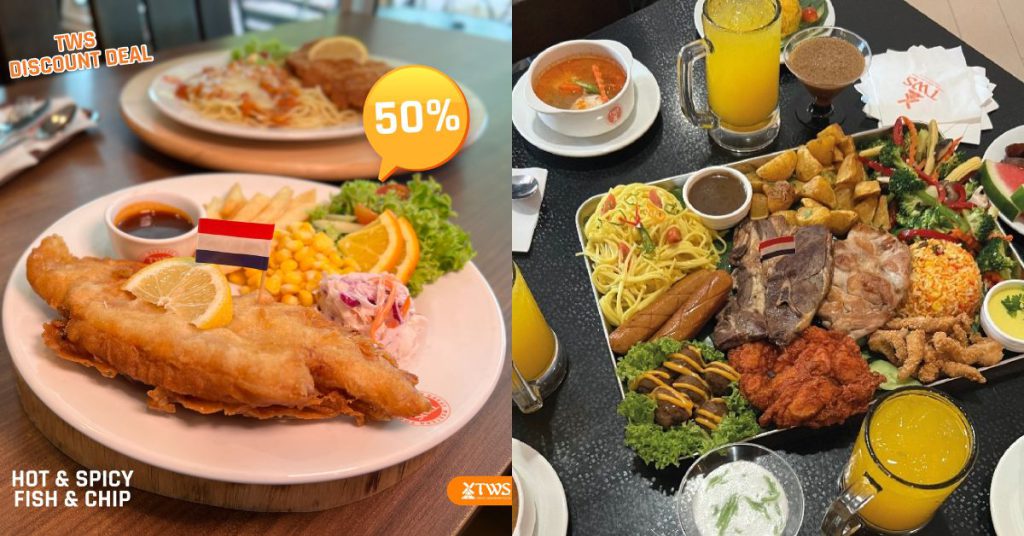
“We started with Heineken beer, which also has roots in Holland,” he shared.
However, he realised that if TWS really wanted to cater to big groups and families, they needed to be fully halal, not just Muslim-friendly or pork-free.
That said, Ællard shared that he understands the appeal of cafes, and he himself went to a few in Melaka before flying back to the Netherlands.
While he’s based in his home country now, makes visits to Malaysia a few times a year, staying for around a month each time.
When he’s not in town, though, Ællard would work closely with his team through the power of the internet. On top of that, his sister-in-law who’s based in Melaka handles the operational side of the business.
Keeping the love for food
Talking to Ællard, I was reminded of the many fond memories I have of the establishment. Perhaps the next time I’m in town, I’ll pay a visit to the restaurant.
After all, the founder shared exciting news that TWS is working on developing its Italian menu further by adding pizzas and various pastas.
Having been an F&B entrepreneur for 23 years, I wondered if Ællard has experienced any pulls to start new ventures here in Malaysia.
To that, he said, “all the time”.
“But I’m looking for enthusiastic people that I can support financially,” he said. “Because I see passion of cooking—or actually anything that you do—as something you need to cherish. That is something that I would like to encourage, especially with the younger generation.”
And passion truly seems to be a big focus of Ællard.
When talking about cafes in Melaka earlier, he brought up how challenging it is for them to survive.
“Those cafes are small scale, and very much depending on the people that are working there,” he said. “They need to put in the heart and soul. But if they have good food and they have passion, they can do it.”
“That kind of passion, I hope that we can show in our restaurant on a larger scale.”
- Learn more about The Windmill Station here.
- Read other articles we’ve written about Malaysian startups here.
Featured Image Credit: The Windmill Station



